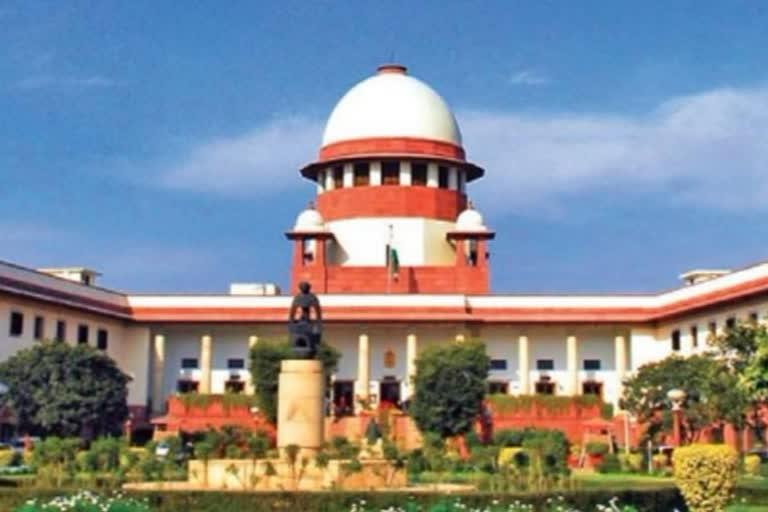New Delhi:Advocate Yusuf Mucchal, appearing for one of the petitioners in the Hijab ban case stated that when a state makes a law for social reform, it has to be concerned with individual rights and not a particular religion. "It has to be ascertained if the law is transgressing into religion, as we are concerned with individual's rights and not a particular religion," he argued. To this, the Supreme Court further questioned if Muslim girls have the right to wear a veil in schools under Article 25 of freedom of free profession, practice, and propagation of religion.
The bench comprising Justice Hemant Gupta and Justice Sudhanshu Dhulia was hearing a bunch of pleas challenging the Karnataka High Court order that had upheld the state's decision to ban wearing hijabs in educational institutions. Monday was the fourth day of hearing the matter, which is likely to be concluded this week.
"A person can doubt all religions or believe in the universality of all religions. Constitutionally speaking, everyone is given that right," counsel Mucchal argued further. He submitted that not only the object of law, but its impact also has to be seen, and in this case, denying the girls to wear hijab is depriving them of their right under Article 25 and right to education.
"What is the crime that these little girls are committing? They are just putting a cloth on their head due to which all rights are being denied to them," said Advocate Mucchal. "My children may or may not wear hijab, but that doesn't mean I can stop anyone else," Mucchal added. Objecting to the High Court's observation that said that wearing hijabs is a recent practice, Mucchal argued that it has continued for centuries in religion and in schools.
